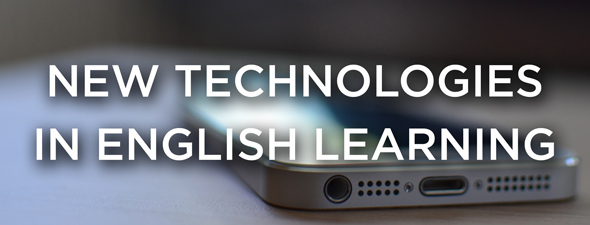
New Technologies in English Learning
Recently, Edudemic put out an article, discussing 6 Technologies That Will Revolutionize the Classroom. Here are the six technologies that they believe will (rightfully) impact education in dramatic fashion.
- Eye Tracking Technology
- Virtual Reality Technology
- Immersive Technology
- Wireless Technology
- Wearable Computing Technology
- Video Chat Technology
The implications of each of these technologies will certainly have a broad impact on education as a whole. But how will these technologies impact English language learning?
1. Eye Tracking Technology
This technology enables individuals with disabilities to use technology by tracking where an individual looks. This technology enables individuals freer access to technology. Eye tracking technology will give individuals with disabilities the opportunity to navigate English language learning software and websites on their own, as well as a greater ability to communicate in English.
2 & 3. Virtual Reality Technology & Immersive Technology
One of the key ways that an individual can acquire English quickly is by immersing themselves in an English-speaking culture. However, for many people, moving to another country is not an option. That is what makes virtual reality and immersive technology so exciting to think about in regards to English language learning. Imagine that a set of goggles could “transport” you to London, England, and you could navigate it’s streets with its English-written signs and English-speaking waiters. That immersion would be simulated, but I imagine it would be very effective in stimulating language growth.
4. Wireless Technology
Wireless technology is leading the charge in reducing the battery power needed to run our mobile technology. The could impact language learning by making technology more accessible to regions where electricity is scarce or unreliable.
5. Wearable Computing Technology
Wearable technology is a field that is rapidly expanding. From wristbands to Google Glass, technology is becoming more apart of our daily routine. One way wearable technology may impact language learning is the ability for a user to constantly expose themselves to a target language. While walking down the street, an English learner could have their Google Glass playing pronunciation videos in English, enabling them to carry on with daily life, all while getting exposure to English. As I mentioned before, immersion in English is a catalyst for language growth, and wearable technology can allow the user more access to English.
6. Video Chat Technology
Video Chat Technology has already revolutionized language learning. A 16-year-old kid with a smart phone can be instantly face-to-face with a qualified teacher on another continent. Skype, Facetime, and Google Hangouts enable English language learners to see how native speakers move their mouths when producing certain sounds, without having to fly halfway around the world.
How do you believe technology will impact English language learning? How has it helped you so far in your English language journey? Comment below to share your story.


